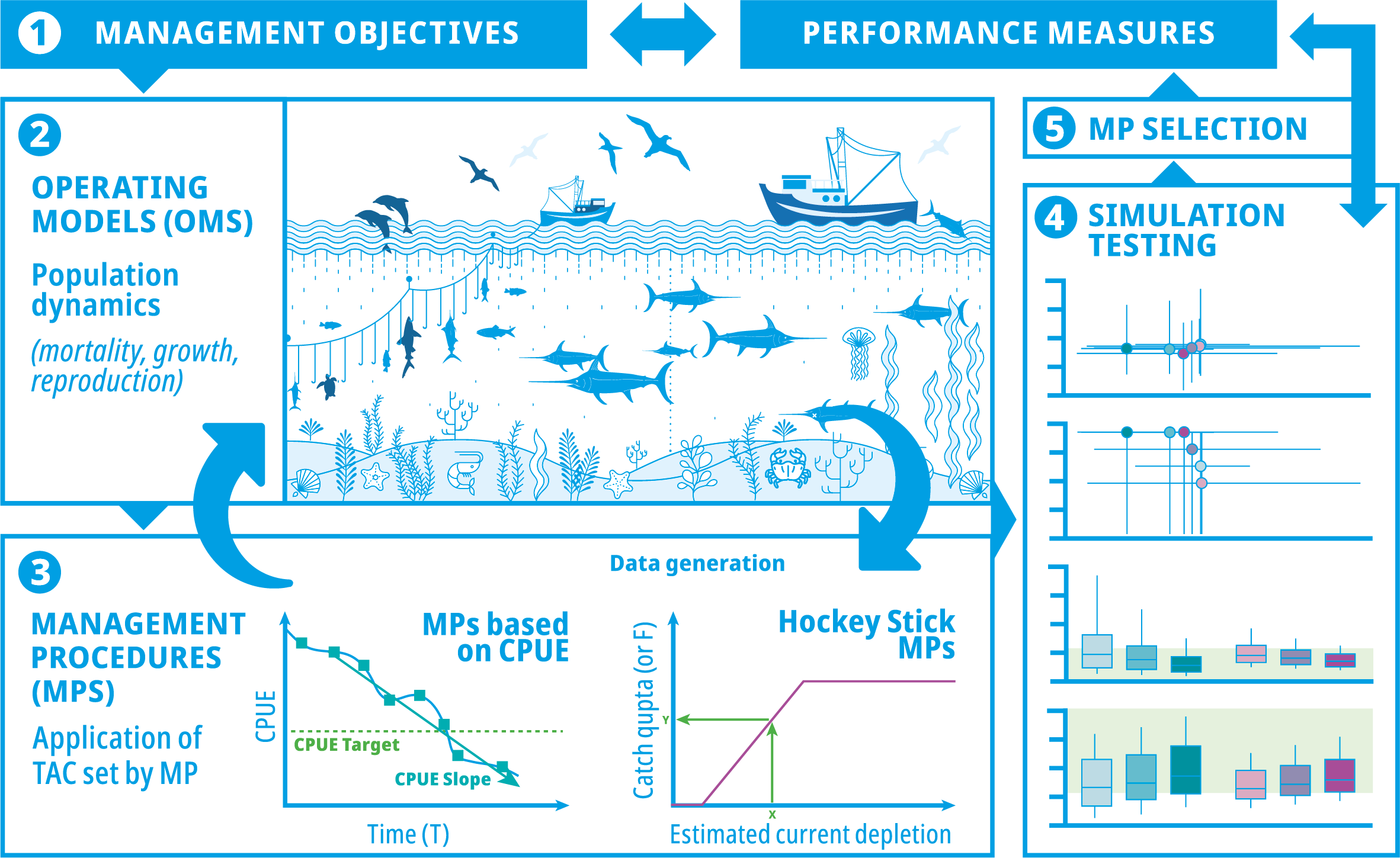Management Strategy Evaluation
Management strategy evaluation represents a paradigm shift. No longer beholden to the accuracy of stock assessments, it is a step towards proactive and robust decision-making. In practice, MSE is a type of quantitative risk assessment that starts with a relatively narrow scope — ecosystem, or explicitly social, cultural, or economic aspects need to be considered separately, as the models generally are only able to account for a fraction of uncertainties.
In the Indian Ocean case study that is used here for illustration, nine sources of uncertainties were considered. The choice of uncertainties is informed by the stakeholders’ beliefs as to what is important. So while we should not overinterpret MSE results as comprehensive, they are informative about the relative performance of management strategies.
Explore Uncertainties
The MSE process is synonymous with better management, more inputs from stakeholders, better monitoring and implementation, and safer fishing pressures. Management procedures (MP) introduce stability that is welcomed by the industry that might see additional benefits from a higher likelihood of being certified as sustainable by the Marine Stewardship Council (MSC).
The MSE process also has the potential to generate other benefits. It can improve understanding and reliability of stock assessments, offer a basis for prioritization of research and data collection needs, facilitate communication on trade-offs inherent in fisheries management, and help reach agreement among stakeholders.
MSE enables exploring a wider set of questions than traditional stock assessments and facilitates agreeing on management procedures that are robust to a wider range of uncertainties than previous management regimes, in commercial or industrial fisheries.
MSE approaches necessitate resolution of a variety of scientific disputes, which itself can be a benefit. It can show that some of the uncertainties that have been considered important are in fact unlikely to have impacts on management objectives, thus lessening conflicts and resolving differences in beliefs.
Other philosophical questions remain open. How to decide on the plausibility of operating models is still an active area of research. Should operating models have predictive powers? How should they be validated and how often? When can we say that MPs have been sufficiently tested and who gets to say it?
How can we deal with the barriers to participation presented by the technical nature of the MSE approach? Open source approaches to sharing the code are helpful but do not empower key stakeholders to critically engage with the process. Reproducibility is an issue even for other modellers; results are rarely run by more than one team.
While helpful in resolving some disagreements, MSE rarely addresses questions of equity. Harvest control rules that are evaluated within MSE usually say little or nothing about how the total catch should be allocated among different users of the resource. However, there have been examples where MSE was explicitly designed to tackle these issues.
The socio-economic benefits of MSE are not guaranteed but depend strongly on how the MSE process is set up, especially, on its transparency, inclusiveness, and effort to improve communication.
- MSE Process
- 1. Identification of Management objectives and Performance measures
- 2. Development of Operating Models (OMs)
- 3. Development of Management Procedures (MPs)
- 4. Simulation Testing of MPs with the OMs
- 5. Selection of an MP based on simulation performance
- 6. Implementation of the MP


